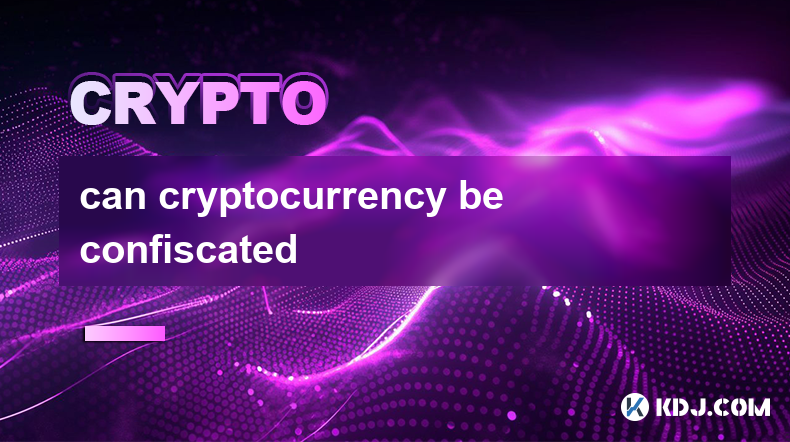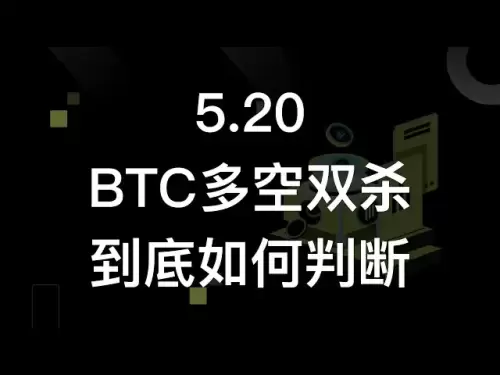-
 Bitcoin
Bitcoin $104,814.0462
2.35% -
 Ethereum
Ethereum $2,485.1443
3.58% -
 Tether USDt
Tether USDt $1.0002
0.02% -
 XRP
XRP $2.3349
1.64% -
 BNB
BNB $642.4666
0.95% -
 Solana
Solana $166.0190
3.46% -
 USDC
USDC $0.9998
0.00% -
 Dogecoin
Dogecoin $0.2195
2.18% -
 TRON
TRON $0.2727
3.40% -
 Cardano
Cardano $0.7263
0.98% -
 Sui
Sui $3.7988
5.54% -
 Chainlink
Chainlink $15.5396
3.28% -
 Avalanche
Avalanche $21.9646
2.35% -
 Stellar
Stellar $0.2820
1.28% -
 Hyperliquid
Hyperliquid $25.8846
2.88% -
 Shiba Inu
Shiba Inu $0.0...01419
1.94% -
 Hedera
Hedera $0.1926
4.12% -
 UNUS SED LEO
UNUS SED LEO $8.7197
1.44% -
 Bitcoin Cash
Bitcoin Cash $386.1340
1.78% -
 Toncoin
Toncoin $3.0424
4.82% -
 Polkadot
Polkadot $4.5425
2.09% -
 Litecoin
Litecoin $92.8673
-1.79% -
 Monero
Monero $346.6996
1.28% -
 Bitget Token
Bitget Token $5.1011
0.71% -
 Dai
Dai $0.9999
0.00% -
 Pepe
Pepe $0.0...01273
1.27% -
 Pi
Pi $0.7382
4.63% -
 Ethena USDe
Ethena USDe $1.0004
0.00% -
 Aave
Aave $260.9913
19.44% -
 Bittensor
Bittensor $415.6502
6.63%
can cryptocurrency be confiscated
Governments possess various mechanisms, including law enforcement and civil asset forfeiture, to confiscate cryptocurrency linked to criminal activity or tax evasion, varying across jurisdictions.
Feb 01, 2025 at 12:18 am

Title: Can Cryptocurrency be Confiscated?
Key Points:
- Legal frameworks regarding cryptocurrency confiscation vary across jurisdictions.
- Governments can seize cryptocurrency through law enforcement and civil asset forfeiture.
- Private entities may also be able to confiscate cryptocurrency in certain circumstances.
- The use of cryptocurrency wallets and privacy-enhancing technologies can help protect against confiscation.
Article:
In the realm of cryptocurrency, concerns about confiscation are not unfounded. Governments and other entities possess the ability to seize digital assets under certain circumstances. Understanding the legal landscape and available protective measures is crucial for cryptocurrency holders.
Government Confiscation
Governments can confiscate cryptocurrency through various mechanisms:
- Law Enforcement: Police and prosecutors can seize cryptocurrency linked to criminal activity, such as drug trafficking or money laundering.
- Civil Asset Forfeiture: Authorities can seize assets suspected of being acquired through illegal means, including cryptocurrency.
- Tax Evasion: Governments can confiscate cryptocurrency as part of tax enforcement actions, including cases where taxes on cryptocurrency gains have not been paid.
The legal frameworks governing cryptocurrency confiscation vary across jurisdictions. In some countries, specific laws have been enacted to address the issue, while others rely on existing legal provisions or case law.
Private Confiscation
In some instances, private entities may also be able to confiscate cryptocurrency:
- Exchanges and Custodians: Cryptocurrency exchanges and custodians may have policies that allow them to freeze or seize funds in certain situations, such as in response to regulatory inquiries or legal disputes.
- Hackers and Scammers: Cybercriminals may compromise cryptocurrency wallets or exchange accounts and steal or confiscate funds.
- Debt Collection: Creditors may have the ability to seize cryptocurrency as a method of debt collection.
Protective Measures
Individuals can take steps to protect their cryptocurrency from confiscation:
- Use Hardware Wallets: Hardware wallets provide enhanced security by storing cryptocurrency offline, reducing the risk of remote confiscation.
- Employ Privacy-Enhancing Measures: Mixing services and privacy-focused cryptocurrencies, such as Monero, can help obfuscate transactions and protect against tracking.
- Geographical Dispersion: Distributing cryptocurrency across multiple exchanges or wallets in different jurisdictions can make it more difficult for authorities to seize all funds.
- Know Your Rights: Understanding the legal frameworks and available legal remedies related to cryptocurrency confiscation is important for challenging unjust actions.
FAQs
Can the government track cryptocurrency transactions?
Yes, governments and law enforcement agencies have tools and techniques to trace cryptocurrency transactions on public blockchains. However, privacy-enhancing cryptocurrencies and techniques can make tracking more challenging.
Can cryptocurrency be hidden from the government?
While it may be possible to conceal cryptocurrency transactions through privacy measures, it is important to note that governments have extensive resources and may still be able to detect hidden assets.
Can the government seize cryptocurrency in hardware wallets?
Yes, governments may have the authority to confiscate cryptocurrency stored in hardware wallets if the holder is compelled to surrender the wallet or its recovery phrase.
Can cryptocurrency be seized for tax evasion?
Yes, governments can seize cryptocurrency as part of tax enforcement actions if taxes on cryptocurrency gains or other income have not been paid.
What are the legal protections against cryptocurrency confiscation?
The legal protections against cryptocurrency confiscation vary depending on the jurisdiction. Some countries have enacted specific laws addressing cryptocurrency confiscation, while others rely on existing legal frameworks or case law.
Disclaimer:info@kdj.com
The information provided is not trading advice. kdj.com does not assume any responsibility for any investments made based on the information provided in this article. Cryptocurrencies are highly volatile and it is highly recommended that you invest with caution after thorough research!
If you believe that the content used on this website infringes your copyright, please contact us immediately (info@kdj.com) and we will delete it promptly.
- Why the Future Might Be Rough for Cardano (ADA) Price Growth
- 2025-05-20 21:05:12
- Why Arctic Pablo Coin Tops The Best New Meme Coins To Join Now
- 2025-05-20 21:05:12
- Binance Pushes to Dismiss FTX's $1.76B Lawsuit, Calling It Factually and Legally Flawed.
- 2025-05-20 21:00:19
- Dawgz AI (DAGZ): Merging AI and Meme Culture to Disrupt the Crypto Market
- 2025-05-20 21:00:19
- Anza Introduces New Alpenglow Consensus Protocol, Aiming to Make Solana Network Faster and More Deterministic
- 2025-05-20 20:55:13
- XRPTurbo (XRT): The Next Big Thing in the XRP Ecosystem
- 2025-05-20 20:55:13
Related knowledge

What is Ethereum’s Slashing mechanism and how to punish malicious behavior?
Feb 20,2025 at 03:08am
Key PointsOverview of slashingDifferent types of slashing in EthereumIncentives and consequences of slashingIdentifying and reporting slashed validatorsOngoing discussions and potential improvementsEthereum's Slashing Mechanism: Punishing Malicious BehaviorEthereum's slashing mechanism is an essential tool for ensuring network security and punishing mal...

What is the verifier node of Ethereum and how to become a verifier?
Feb 19,2025 at 06:00pm
The Verifier Node of Ethereum: A Comprehensive GuideKey Points:What is a Verifier Node?How to Become a Verifier NodeResponsibilities and Rewards of a Verifier NodeMinimum Requirements for Becoming a Verifier NodePotential Difficulties in Running a Verifier Node1. What is a Verifier Node?A Verifier Node is an independent entity on the Ethereum network th...

What is Ethereum’s staking, and how to participate and earn money?
Feb 19,2025 at 04:37pm
Key Points:Understanding Ethereum's Staking MechanismSteps to Participate in StakingBenefits and Rewards of StakingSecurity and Risk ConsiderationsTechnical Requirements and Hardware OptionsPotential Challenges and Troubleshooting TipsFAQs on Ethereum StakingWhat is Ethereum's Staking?Proof-of-Stake (PoS) is a consensus mechanism used in blockchain netw...

What is Ethereum’s DAO (Decentralized Autonomous Organization) and how does it work?
Feb 20,2025 at 03:12am
Key PointsDefinition and Structure of a DAOGovernance and Decision-Making in DAOsBenefits and Use Cases of DAOsChallenges and Limitations of DAOsWhat is Ethereum's DAO (Decentralized Autonomous Organization) and How Does It Work?Definition and Structure of a DAOA Decentralized Autonomous Organization (DAO) is an innovative governance and management fram...

What is Ethereum's multi-signature wallet and how to improve security?
Feb 20,2025 at 02:18pm
Key Points:Understanding the Concept of a Multi-Signature WalletBenefits and Drawbacks of Multisig WalletsRequirements for Setting Up a Multisig WalletStep-by-Step Guide to Generating a Multisig WalletImplementing Strategies for Enhanced Security1. Understanding the Concept of a Multi-Signature WalletA multi-signature (multisig) wallet in the Ethereum e...

What is Ethereum's oracle and how to provide data for smart contracts?
Feb 21,2025 at 01:30am
Key Points:Understanding the concept of oracles in EthereumExploring different types of oraclesDetailed guide on how to provide data for smart contractsAddressing potential challenges and considerationsWhat is Ethereum's Oracle?Oracles are crucial components in the Ethereum ecosystem, enabling smart contracts to access real-world data and off-chain even...

What is Ethereum’s Slashing mechanism and how to punish malicious behavior?
Feb 20,2025 at 03:08am
Key PointsOverview of slashingDifferent types of slashing in EthereumIncentives and consequences of slashingIdentifying and reporting slashed validatorsOngoing discussions and potential improvementsEthereum's Slashing Mechanism: Punishing Malicious BehaviorEthereum's slashing mechanism is an essential tool for ensuring network security and punishing mal...

What is the verifier node of Ethereum and how to become a verifier?
Feb 19,2025 at 06:00pm
The Verifier Node of Ethereum: A Comprehensive GuideKey Points:What is a Verifier Node?How to Become a Verifier NodeResponsibilities and Rewards of a Verifier NodeMinimum Requirements for Becoming a Verifier NodePotential Difficulties in Running a Verifier Node1. What is a Verifier Node?A Verifier Node is an independent entity on the Ethereum network th...

What is Ethereum’s staking, and how to participate and earn money?
Feb 19,2025 at 04:37pm
Key Points:Understanding Ethereum's Staking MechanismSteps to Participate in StakingBenefits and Rewards of StakingSecurity and Risk ConsiderationsTechnical Requirements and Hardware OptionsPotential Challenges and Troubleshooting TipsFAQs on Ethereum StakingWhat is Ethereum's Staking?Proof-of-Stake (PoS) is a consensus mechanism used in blockchain netw...

What is Ethereum’s DAO (Decentralized Autonomous Organization) and how does it work?
Feb 20,2025 at 03:12am
Key PointsDefinition and Structure of a DAOGovernance and Decision-Making in DAOsBenefits and Use Cases of DAOsChallenges and Limitations of DAOsWhat is Ethereum's DAO (Decentralized Autonomous Organization) and How Does It Work?Definition and Structure of a DAOA Decentralized Autonomous Organization (DAO) is an innovative governance and management fram...

What is Ethereum's multi-signature wallet and how to improve security?
Feb 20,2025 at 02:18pm
Key Points:Understanding the Concept of a Multi-Signature WalletBenefits and Drawbacks of Multisig WalletsRequirements for Setting Up a Multisig WalletStep-by-Step Guide to Generating a Multisig WalletImplementing Strategies for Enhanced Security1. Understanding the Concept of a Multi-Signature WalletA multi-signature (multisig) wallet in the Ethereum e...

What is Ethereum's oracle and how to provide data for smart contracts?
Feb 21,2025 at 01:30am
Key Points:Understanding the concept of oracles in EthereumExploring different types of oraclesDetailed guide on how to provide data for smart contractsAddressing potential challenges and considerationsWhat is Ethereum's Oracle?Oracles are crucial components in the Ethereum ecosystem, enabling smart contracts to access real-world data and off-chain even...
See all articles























































































